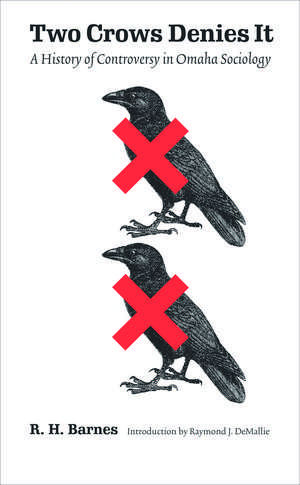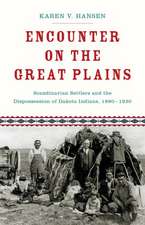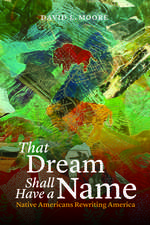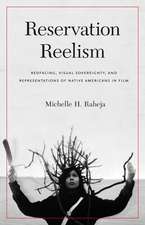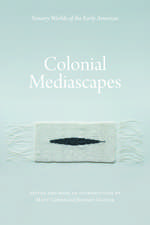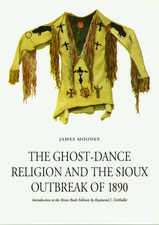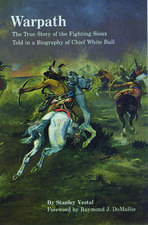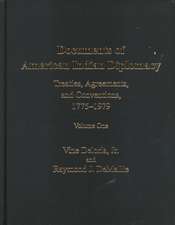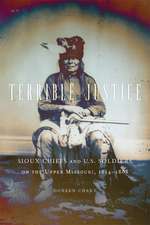Two Crows Denies It: A History of Controversy in Omaha Sociology
Autor R. H. Barnes Introducere de Raymond J. DeMallieen Limba Engleză Paperback – 31 dec 2005
In Two Crows Denies It, R. H. Barnes undertakes an ambitious historical analysis of anthropological scholarship about Omaha kinship systems. His groundbreaking work offers a critique of this established scholarship, including the work of Lévi-Strauss, Dorsey, and Fletcher. In comparing the primary and secondary accounts of Omaha descent, relationship, and naming systems, Barnes reveals the dissonance between the reality of Omaha society and the scholarship that has formed around it. Not only does he put forth a new and more realistic interpretation of Omaha sociology specifically, but in so doing he provides a reinterpretation of an aspect of anthropological theory. This edition includes a new introduction by Raymond J. DeMallie.
Preț: 195.56 lei
Nou
Puncte Express: 293
Preț estimativ în valută:
37.42€ • 40.64$ • 31.44£
37.42€ • 40.64$ • 31.44£
Carte disponibilă
Livrare economică 02-16 aprilie
Preluare comenzi: 021 569.72.76
Specificații
ISBN-13: 9780803262546
ISBN-10: 080326254X
Pagini: 272
Ilustrații: Illus.
Dimensiuni: 135 x 203 x 15 mm
Greutate: 0.39 kg
Editura: Nebraska Paperback
Colecția University of Nebraska Press
Locul publicării:United States
ISBN-10: 080326254X
Pagini: 272
Ilustrații: Illus.
Dimensiuni: 135 x 203 x 15 mm
Greutate: 0.39 kg
Editura: Nebraska Paperback
Colecția University of Nebraska Press
Locul publicării:United States
Notă biografică
R. H. Barnes is a professor of anthropology at Oxford University, specializing in North American and Southeast Asian social anthropology. His publications include Sea Hunters of Indonesia: Fishers and Weavers of Lamalera. Raymond J. DeMallie is a professor of anthropology at Indiana University. His works include The Sixth Grandfather: Black Elk’s Teachings Given to John G. Neihardt, available in a Bison Books edition.
Recenzii
“An important contribution to the anthropological literature of American Indian social systems.”—American Indian Culture and Research Journal
“A major contribution to kinship studies and one which will certainly lead many of us—including myself—to qualify their interpretations.”—Claude Lévi-Strauss
“A major contribution to the study of kinship, comparative ethnology, and the sociology of anthropological knowledge. The book deserves careful attention by anyone interested in the nature of anthropological inquiry.”—Plains Anthropologist
